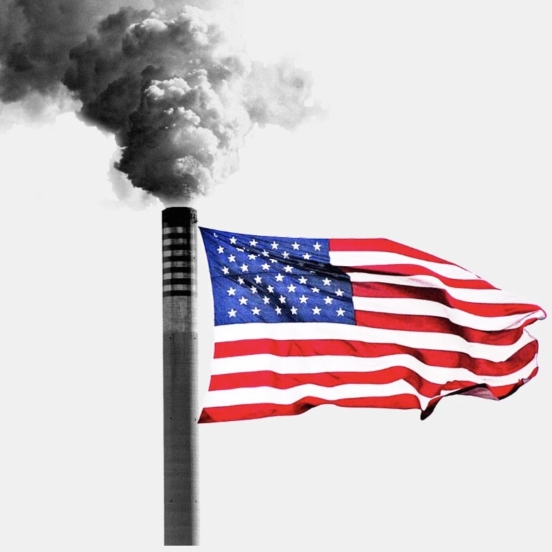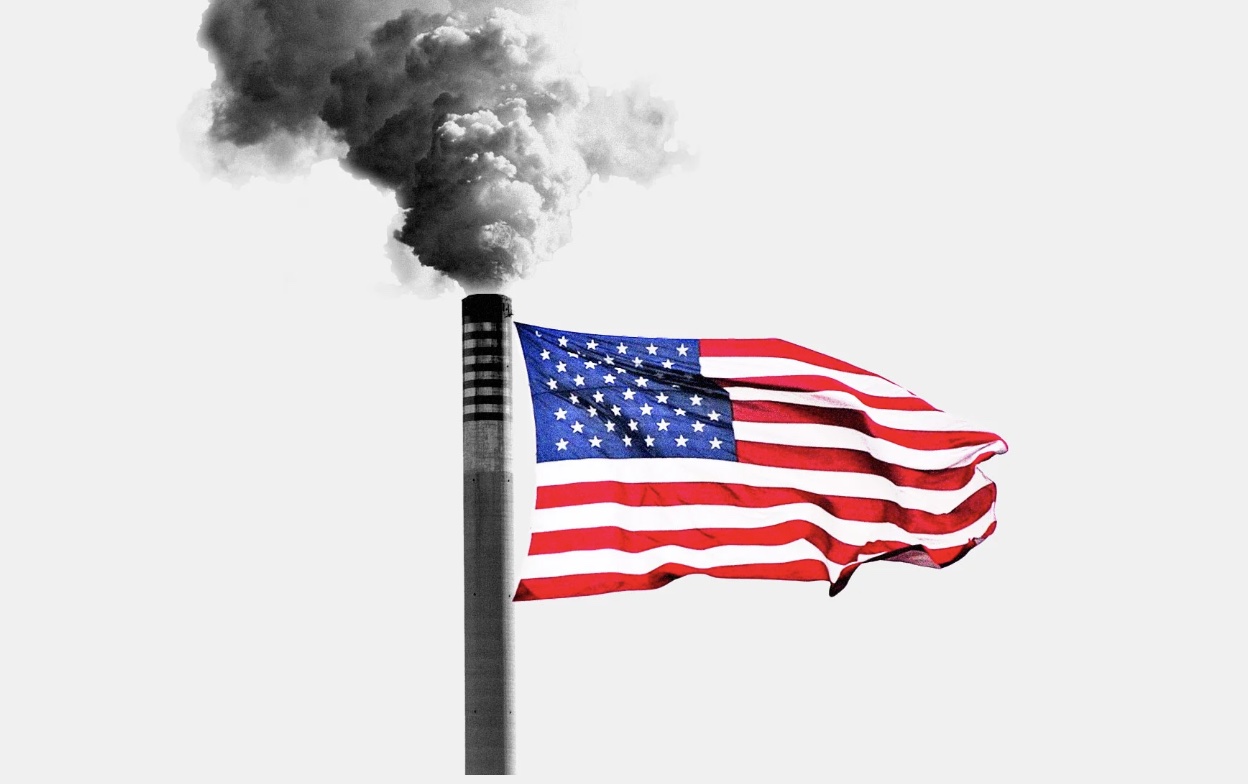Climate, Health and Equity Brief
America’s abdication on climate
July 18, 2022

The Climate, Health & Equity Brief is GMMB’s take on the week’s news on the current impacts of climate change. If you haven’t subscribed yet, you can do so by clicking here.
Hot Topic: Shame. As billions of people across multiple continents suffer a debilitating climate change-fueled heat wave, one man has dealt a crushing blow to U.S.—and therefore global—climate ambitions. Sen. Joe Manchin (D-WV) announced Thursday that he cannot support funding for climate or energy programs in the face of current “economic realities.” Notably, he also rejected efforts to raise taxes on corporations or the wealthiest Americans.
Manchin’s stunning announcement, which came after months of Democratic negotiating in hopes of arriving at a watered-down package he could support, likely ends the prospect of any meaningful climate action this Congress—a particularly alarming prospect as we head into midterm elections that could give Republicans control of one or both chambers.
And the news comes just as a new report shows that without major policy interventions like the one Sen. Manchin just jettisoned, the U.S. will fall far short of achieving a 50% reduction in emissions by 2030. That was the Paris Agreement commitment the U.S. made on the global stage in 2015, and one that impacts every person on the planet, given our outsized role in the climate crisis.
A second new report shows that taken together, American and Chinese emissions and their resulting climate impacts have cost the world—and developing countries in particular—trillions in reduced crop yields, labor productivity and industrial outputs. And a third report finds that 11 African nations that are among the least to blame for climate change emit 27 times less CO2 per person than the global average—yet they must now spend up to five times more to adapt to the climate crisis than they do on health care for their entire populations.
Can America redeem itself on climate? Sen. Manchin has said he may reconsider his position in September depending on the state of inflation, though many believe that is unlikely. And President Biden can—and likely will—impose executive actions to address climate change, though those can be easily overturned by future administrations, or declared unconstitutional by the Supreme Court.
Despite our long-held belief in America’s moral leadership and decades-long Democratic efforts to forestall the climate crisis, this week’s development means that, at least in this moment, we have failed the world. The “ugly American” reputation feels well-earned in these moments—and only by using our collective power at the ballot box can we to begin to turn that tide.
—Matt & Traci, GMMB
Human Health
Faced with some of the highest early summer temperatures ever recorded, health officials in the U.S., Europe and Japan are raising concerns about the long-term health effects of extended heat and chronic dehydration, including cognitive dysfunction, high blood pressure, acute kidney injury, diabetes, cardiovascular disease and obesity. (TIME)
Experts are sounding the alarm about a 300% increase in cases of Powassan virus—a deadly tick-borne disease that kills 10% of those infected—as increasing temperatures allow ticks to survive and thrive in much wider areas of the U.S. through the winter months. (Grist)
A persistent heatwave in China that has affected 900 million people intensified this week, sending temperatures soaring above 108°F, causing multiple heat stroke deaths and requiring officials to ration power to factories to ensure sufficient supply for air conditioners. (Bloomberg)
Planetary Health
Deforestation of the Amazon has hit a new record, with an area five times the size of New York City destroyed so far this year—a fact that belies Brazilian President Jair Bolsonaro’s dubious commitment to curtail deforestation by 2030 and deepens concerns that Earth’s biggest carbon sink could soon be damaged beyond repair. (The Washington Post)
A new study published in Nature revealed that a quarter of Earth’s best-protected forests are at a “critical threshold” for catastrophic decline, with even bristlecones pines—the planet’s oldest trees, some of which have stood for 5,000 years—no longer considered immune to climate impacts. (The Washington Post)
A torrential downpour in southwest Virginia caused severe flooding that damaged over 100 homes and tore through roads and bridges, leading to an emergency declaration from the governor to facilitate recovery efforts. (CNN)
It seems odd that Manchin would choose as his legacy to be the one man who single-handedly doomed humanity.”
– John Podesta, founder of the Center for American Progress
Equity
A new study quantified how U.S. and Chinese emissions were responsible for $3.7 trillion in global economic losses from 1990 to 2014 and have saddled poorer countries with massive economic losses by damaging agricultural yields, reducing labor productivity and curbing industrial output. (CNBC)
African leaders are calling out the hypocrisy of Europe pushing Africa to prioritize a clean-energy transition while Europe extracts more fossil fuels from Africa in the face of the crisis in Ukraine, saying the move is delaying access to electricity for hundreds of millions of Africans while keeping the lights on in Europe. (Bloomberg)
Data show that as extreme weather events have increased five-fold since the 1970s, early warning systems have been tremendously effective at saving lives in countries like the U.S., yet one-third of the world’s people—primarily those living in the most climate-vulnerable countries on earth—still lack protection from these systems. (Vox, Reuters).
A damning new analysis found that 11 African nations whose greenhouse gas emissions are 27 times lower per person than the global average will have to spend five times more on climate adaptation costs than they do on health care to avert further consequences from the climate crisis. (The Guardian)
Politics & Economy
In a crushing blow to U.S. climate ambitions, Sen. Joe Manchin (D-WV) said he would not support any new spending for climate initiatives as part of a budget reconciliation package, virtually dooming any chance of passing major climate legislation this Congress. (E&E News)
A new analysis revealed that absent any additional policy action, the U.S. is only on track to reduce emissions by 24-35% by 2030, far short of its Paris Agreement commitment to achieve a 50-52% reduction in that time frame. (Grist).
Consumer Reports’ largest-ever nationally representative survey revealed that over 14% of Americans would “definitely” buy or lease an electric-only vehicle if they were to buy one today, up from just 4% in 2020. (Consumer Reports)
A recently introduced and thankfully doomed bill in North Carolina proposed removing free EV charging stations on the basis of “inequity” toward drivers who have to pay for gas, a potentially troubling sign of emerging tactics from conservatives in the fight to stop climate action. (Protocol)
A new report forecasts that copper demand could more than double by 2035, raising concerns that a shortage could derail the transition to clean energy, as copper is vital to the development of EVs, solar and wind power and batteries for energy storage. (CNBC)
Life as We Know It
Climate-fueled drought and flooding are leading factors in a projected 20% drop in chickpea production this year, meaning hummus shortages and price hikes are on the horizon at your local grocery stores. (Euro News)
Action
To combat climate change and air pollution, five San Francisco Bay Area cities have prohibited new gas stations in their communities, prompting some leaders to consider similar measures in car-centric Los Angeles County, which already has more than 2,000 gas stations in operation. (Los Angeles Times)
The owner of Ravenswood—New York City’s largest natural gas-fired power plant, and one that has been the frequent target of pollution protests—announced that the plant will be closed and repurposed for clean energy transmission and storage. (Bloomberg)
Scientists and startups are building factories in hopes of eventually producing advanced battery cells that will allow EVs to be made cheaper, travel farther and charge in as little as 10 minutes. (The New York Times)
Utilizing new technology and low flight patterns, airlines out of Hawaii are expected to launch battery-powered sea gliders for regional travel and goods transportation within the next three years. (Axios)
Kicker
Bookmark the Climate Action Tracker to keep tabs on the progress (or lack thereof) of the U.S. and other high-emitting countries in addressing the climate crisis.
The GMMB Climate, Health & Equity Brief would not be possible without the contributions of the larger GMMB California team— Elke Cortes, Devin Della Maggoria, Sharde Olabanji and Stefana Simonetto. Feedback on the Brief is welcome and encouraged and should be sent to CHandEBrief@gmmb.com.






